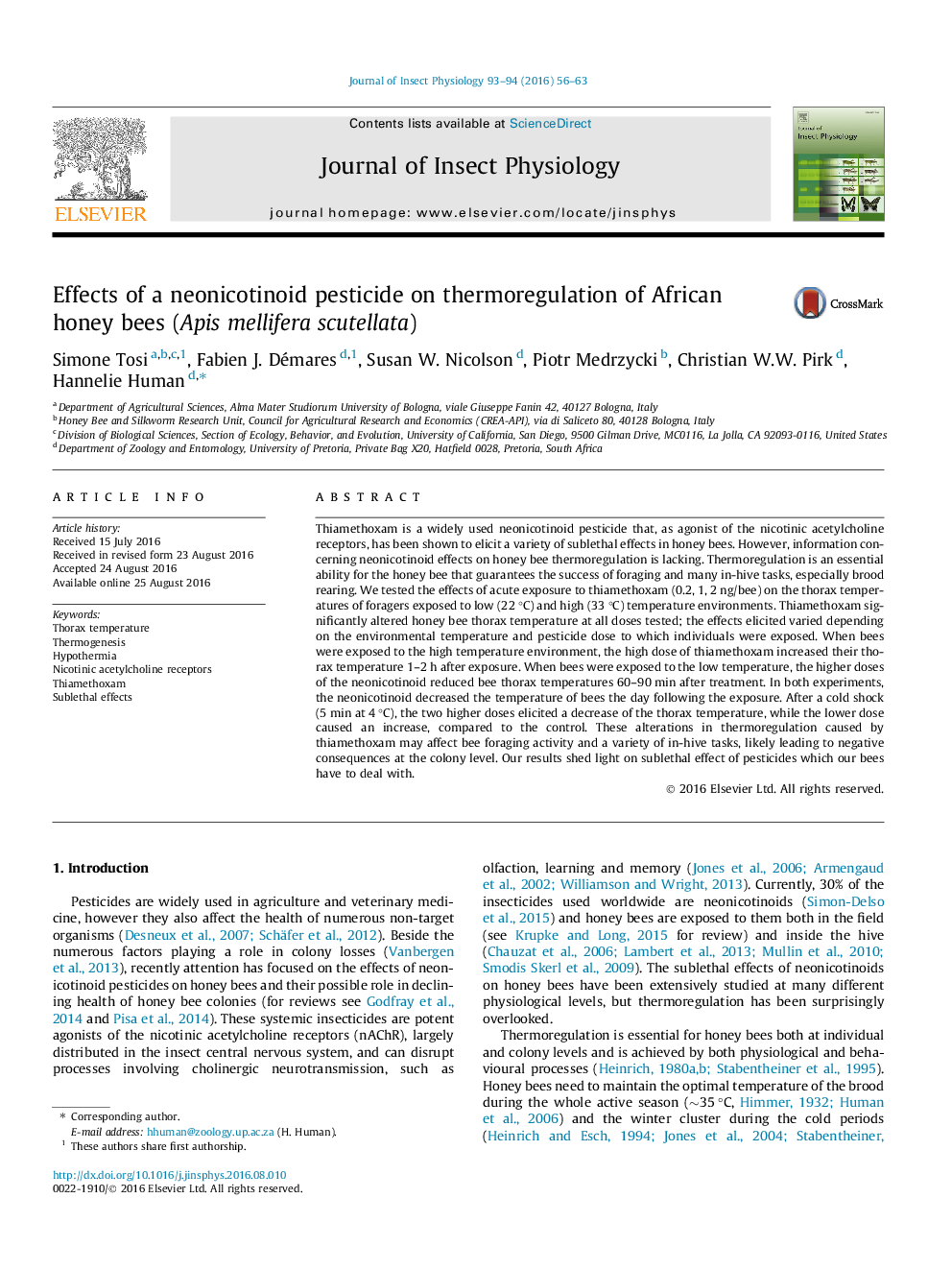| کد مقاله | کد نشریه | سال انتشار | مقاله انگلیسی | نسخه تمام متن |
|---|---|---|---|---|
| 2840258 | 1570978 | 2016 | 8 صفحه PDF | دانلود رایگان |

• The thorax temperatures of harnessed foragers fed thiamethoxam was measured by thermal imaging.
• Acute oral exposure to thiamethoxam significantly altered bee thorax temperature.
• The effects depended on dose and environmental temperature.
• The alteration starts 1 h post-treatment and is still present 1 day later.
• This thermoregulation alteration may affect colony health through foraging activity.
Thiamethoxam is a widely used neonicotinoid pesticide that, as agonist of the nicotinic acetylcholine receptors, has been shown to elicit a variety of sublethal effects in honey bees. However, information concerning neonicotinoid effects on honey bee thermoregulation is lacking. Thermoregulation is an essential ability for the honey bee that guarantees the success of foraging and many in-hive tasks, especially brood rearing. We tested the effects of acute exposure to thiamethoxam (0.2, 1, 2 ng/bee) on the thorax temperatures of foragers exposed to low (22 °C) and high (33 °C) temperature environments. Thiamethoxam significantly altered honey bee thorax temperature at all doses tested; the effects elicited varied depending on the environmental temperature and pesticide dose to which individuals were exposed. When bees were exposed to the high temperature environment, the high dose of thiamethoxam increased their thorax temperature 1–2 h after exposure. When bees were exposed to the low temperature, the higher doses of the neonicotinoid reduced bee thorax temperatures 60–90 min after treatment. In both experiments, the neonicotinoid decreased the temperature of bees the day following the exposure. After a cold shock (5 min at 4 °C), the two higher doses elicited a decrease of the thorax temperature, while the lower dose caused an increase, compared to the control. These alterations in thermoregulation caused by thiamethoxam may affect bee foraging activity and a variety of in-hive tasks, likely leading to negative consequences at the colony level. Our results shed light on sublethal effect of pesticides which our bees have to deal with.
Figure optionsDownload as PowerPoint slide
Journal: Journal of Insect Physiology - Volumes 93–94, October–November 2016, Pages 56–63